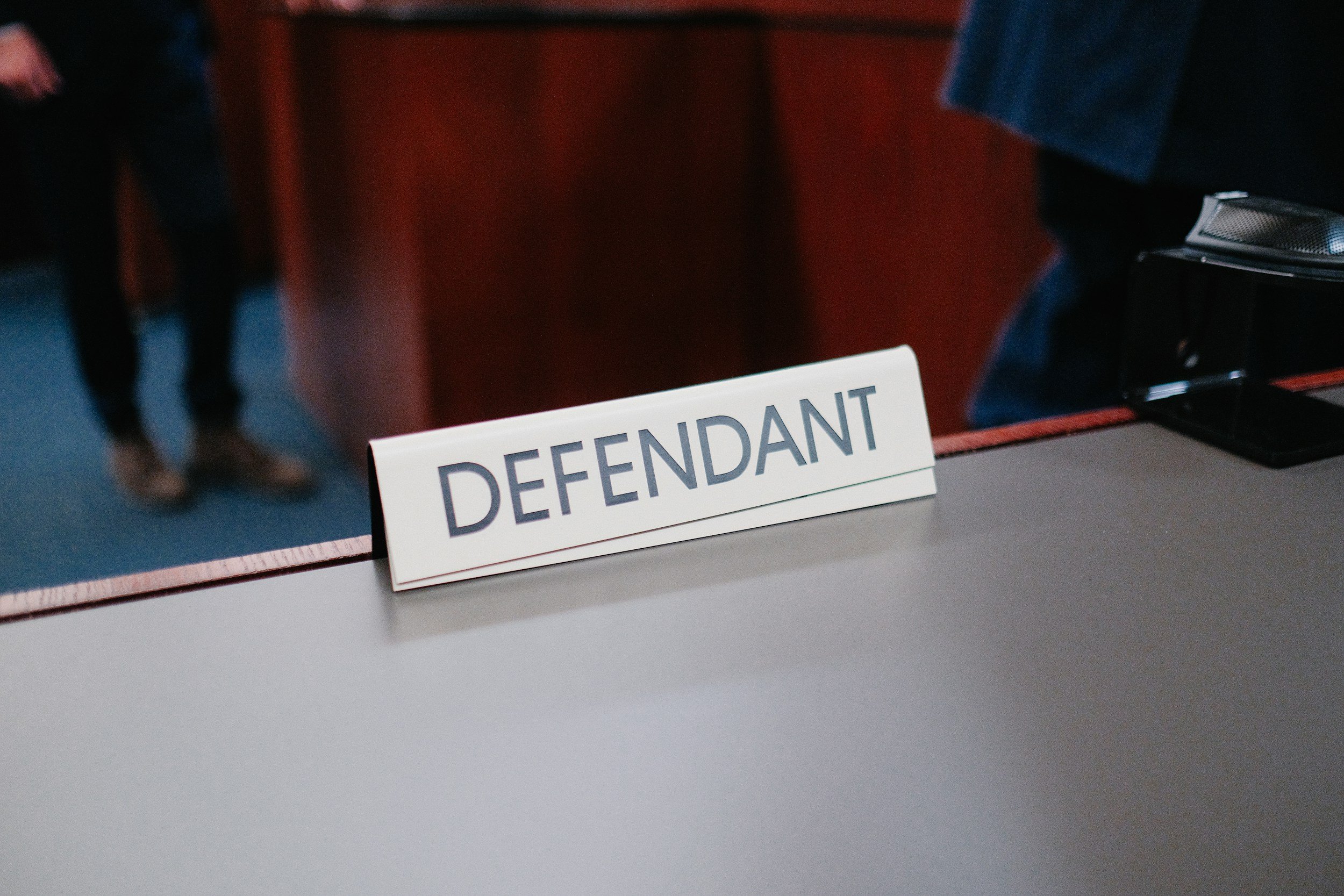
Search Through our Issue 2025

The Legal Implications and Regulation Reform of Electric Vehicles
The global transition to electric vehicles (EVs) is widely regarded as a critical step towards reducing carbon emissions and mitigating climate change. However, while EVs are often framed as a sustainable alternative to internal combustion engine vehicles (ICEVs), their environmental benefits are much more complex, and require new provisions. Existing environmental regulations primarily address emissions but fail to account for the full lifecycle impact of EVs, including battery production and end-of-life disposal. Additionally, the rapid growth of the EV market has introduced significant legal and trade challenges, including differences in environmental standards, supply chain issues, and international trade disputes.

International Law in Crisis: The Ukraine War and the Failure of Legal Mechanisms
Public international law serves as a critical framework for balancing the protection of human rights and the maintenance of global peace. Its role in regulating armed conflicts and ensuring accountability for violations is essential for a just international order. However, the ongoing war in Ukraine has exposed significant flaws and limitations within this system, highlighting a profound crisis in international law. Despite the existence of established legal mechanisms and institutions, their inability to effectively address the conflict raises urgent questions about the efficacy of international law in managing contemporary crises. This article examines how the war in Ukraine has underscored the failures of key legal mechanisms, from the paralysis of the United Nations Security Council (UNSC) to the enforcement challenges faced by the International Criminal Court (ICC).

The rise of AI and its challenges: How can regulation ensure that Artificial Intelligence benefits innovation in UK law firms?
Artificial intelligence (AI) is undeniably a tool that will assist law firms in streamlining administrative tasks, providing valuable analytical insight, and carrying out more efficient legal research. While such benefits will allow legal professionals to focus on complicated issues that requires ethically inquisitive care, AI use simultaneously requires strict and meticulously developed regulation to maximise the benefits, and minimise the pitfalls, of technological advancement.

The Discriminatory Side Effects of Artificial Intelligence
The benefits of Artificial Intelligence (AI) are monumental. From self-driving cars to proof-reading contracts, AI has embedded itself into our daily life as an invaluable tool due to the innate fact that the capabilities of AI extend beyond that of humans. As the benefit of AI to both work and personal life becomes increasingly evident, there are discriminatory side effects that become increasingly evident as AI has a tendency to discriminate towards women, ethnic minorities (which henceforth I will focus on with specific regard to black people only), and neurodivergent people. However, peaceful cohabitation between humans and AI cannot be possible whilst the discriminatory side effects of AI prevail. The question is: can we foster an environment in which AI can flourish whilst simultaneously preventing discrimination against marginalised groups?

Death of a City: How Legal Mechanisms Caused Democratic Backsliding in Hong Kong
This article examines how legal mechanisms have been utilised to facilitate democratic backsliding in Hong Kong, and by extension, how authoritarian regimes can weaponise the law to undermine civil liberties while maintaining a façade of legitimacy. Hong Kong’s predicament can inform the world about the role of law in democracy, offering insights for protecting democratic institutions against similar threats elsewhere.

The Doctrine of Judicial Supremacy: Reassessing the Role of Courts in a Constitutional Democracy
In democratic systems, the judiciary is seen as a key safeguard of constitutional principles. Courts, particularly in constitutional democracies, have the critical responsibility of interpreting and upholding the Constitution, ensuring the protection of individual rights and resolving disputes. The concept of judicial supremacy – the idea that courts hold the ultimate authority in constitutional interpretation – has been a foundational aspect of many legal systems. However, as democracy evolves, so too does the ongoing debate about the appropriate limits of judicial power.

The EU AI Act 2024: A Necessary Framework for Ensuring Transparency, Privacy, and Rights in AI Regulation
This calibrated framework – ban the worst, strictly control the high-impact, and lightly handle the rest – reflects an attempt to balance innovation with precaution. By focusing oversight on use-cases with the highest stakes, the EU aims to enforce accountability where it matters most while not smothering AI development across the board.

The Impact of Greenwashing on the Legal Industry
The rise of greenwashing has had a significant impact on the legal landscape, namely regulatory compliance, litigation, and the overall ESG framework. Law firms face both challenges and opportunities for growth as the ESRS continues to face scrutiny. Certainly, clients will rely on assistance from legal service providers to ensure regulatory compliance and avoid the risk of litigation from ‘impacted parties, reputational damage, and also, increasingly, regulatory interest.’

A Crisis of Confidence: Can British Democracy Survive the Digital Age?
The profound judgement produced by the “twitter joke trial” had ignited a genuine fear in British society over the blatant overreach by government authorities to infringe their democratic rights, without remorse or true reason. But this case happened in 2012, mere fledgling years in the history of social media. The threat therefore seemed minimal, the fear it caused seemed quick to forget. Britain, had no way of knowing however, that they would soon get a much more menacing glimpse into the realisation of their fears, more than a decade later, within social unrest of the summer riots, ignited by the Stockport stabbings of 2024.

The decriminalisation of sex work in Belgium: emancipation or oppression?
In May 2024, the Belgium government voted to grant sex workers in an employment contract workers’ rights, refining the rights provided by the vote for the decriminalisation of Belgian sex workers (again, under employment contracts) in March 2022. Unlike decriminalisation alone, the 2024 vote granted this category of Belgian sex workers access to the nation’s social security system, in other words access to health insurance, maternity leave, pensions, and other employment benefits. However, while this new system does, in many ways, improve the lives’ of sex workers across Belgium, opposition to this new law – even from sex workers themselves – has created a divide that I will explore in this article.

A Call for a New International Crime: Gender Apartheid
The concept of gender apartheid was first created by Afghan human rights activists and feminists as a result of the systemic oppression that Afghanistan’s women and girls have faced under the Taliban’s rule in the 1990s. What instigated its permeation in the international law community was Afghanistan’s passing of its most recent inhumane law in August 2024, which stated that women could not speak or reveal their faces outside their homes, or read or sing aloud when in the home. According to Agnès Callamard, Amnesty International’s Secretary General, the global community “has failed to adequately recognize, acknowledge and address the institutionalised…domination and oppression of women, girls, and LGBTI people.

Unconscionability in the law of equity. A defence of the age-old maxim: equity will not perfect an imperfect gift.
Following the decision in Pennington v Waine, the law of equity, specifically the long-established equitable principles surrounding gifts, has been thrown into disarray. This article argues that the fundamental principles (maxims) established by Milroy v Lord remain relevant, and the more recent developments in this area of equity are misguided; an example of judicial development going astray.

The Importance of a Defendant’s Right to Effectively Participate in their Criminal Proceedings.
Traditionally, the understanding of a defendant’s participatory rights may be limited to the defendant simply being present during the trial; to hear the evidence being put against them. However, this has progressed to reflect the role of effective participation as an essential component in delivering justice. This article will outline what is meant by participatory rights, how these are currently protected in English law, and how effective this legislation is in reflecting the importance of them.

The Role of ESG Regulation in UK IPOs: Implications for Businesses, Legal Practice, and Consumer Interests
Neglecting material ESG risks can have serious implications for a company’s reputation and legal standing, as seen in the 2021 Deliveroo IPO. Major institutional investors declined to participate in Deliveroo’s offering, citing concerns over the company’s treatment of gig-economy workers. This backlash resulted in a substantial decrease in Deliveroo’s market valuation, demonstrating that ESG issues are not just ethical considerations but also material financial risks. In addition to reputational concerns, not adhering to these ESG standards can expose companies to legal liabilities.

Who Consented to This? - A Legal Exploration into how Ages of Consent Should be Settled upon in Light of Iraq’s Intention to Reduce it to Nine Years Old
The foundation of Iraq’s new amendment is to supposedly prevent immoral (premarital) relationships among the youth, demonstrating a fundamental difference in the objective of legislation when contrasted with the UK for example. The difference is that of care versus control. If the ‘end of law is not to abolish or restrain, but to preserve and enlarge freedom’ then preventing consenting teenagers from entering into relationships whilst allowing child-marriage is not only a failure in law, but also a wilful endangerment of society’s most vulnerable – children.

The Future of AI in Law Firms: The Evolution of Support or The Revolution of Representation?
Many law firms have become aware of the need to incorporate AI systems, with the uprising of new legal technology. However, as always with the arrival of any new artificial technology, comes a large plethora of unanswered questions and anxious speculations. This article will explore a key question regarding the relationship between AI and the legal sphere: will it serve solely as a support tool in law firms, or will it grasp a larger role, taking over legal representation as a whole?

Should we allow nations to claim sovereignty in space? An analysis of The Outer Space Treaty and other international space law instruments
The first UN treaty developed to govern space exploration and exploitation, the Outer Space Treaty of 1967 was a groundbreaking piece of legislation for its time, referred to by some as the ‘Magna Carta of international space law’. However, this does not affirm its effectiveness today. In fact, since the implementation of the Outer Space Treaty, the number of space-faring nations has increased drastically, with not just two superpowers (the US and USSR) dominating the space expiration sphere anymore: as of 2022, approximately 70 countries (including nations such as Rwanda and the Philippines) had established national space agencies, and 20 of these spend more than $100 million per year on civil space. Due to this, it can be argued that today the Outer Space Treaty is merely a symbolic instrument: it is the key mechanism to approaching international space law, but lacks competent approaches to modern threats.

The roots of femicide: an epidemic threat to the lives of women.
For some women, home can be the most lethal place. Intimate femicide is the most prevalent form of femicide and falls under the remit of lethal domestic private violence. Out of 147 women killed by men in the UK in the year of 2021, 53% were killed by a current or former intimate partner. Reinforcing my earlier point that violence is a tool used by men to force women to adhere to certain behaviours, 33 of those women were taking steps to leave, or had left the relationship- here the goal is subordination and control. In this way, intimate femicide can be premised on societal gender expectations formed by the patriarchy, more specifically, a woman’s supposed duty to obey their male counterparts.

Cobalt and Consequences: Unmasking Corporate Complicity in the Democratic Republic of Congo’s Human Rights Crisis
Cobalt mining in the DRC is synonymous with egregious human rights abuses. Artisanal miners, including children, often work in perilous conditions characterised by a lack of safety protocols, inadequate equipment, and exposure to toxic materials. Forbes reports that children as young as six years old are engaged in mining activities, enduring gruelling labour for minimal pay—averaging $0.81 per day for children, $1.02 for adult women, and $2.04 for adult men. Many work in unregulated pits prone to collapses, resulting in injuries and fatalities. The lack of medical facilities and emergency services in these remote areas exacerbates the situation, as injured workers often struggle to access necessary treatment.
